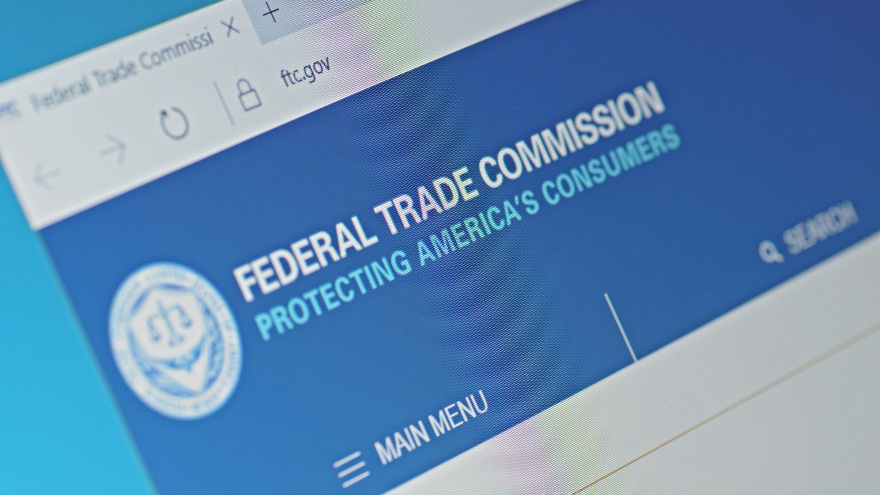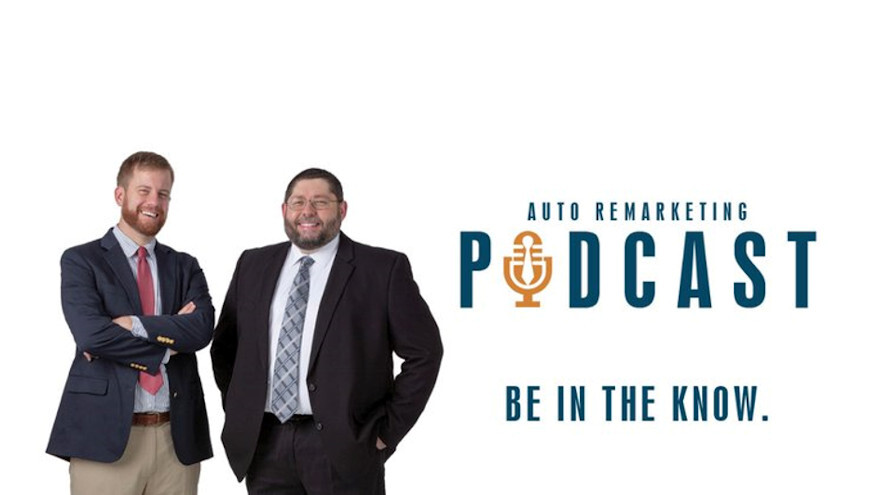A recent Tip of the Week from Ignite Consulting Partners delved into the social media world your children might know well — TikTok.
Ignite recapped that during the last few weeks, a TikTok video went viral and gave consumers some “bad ideas and created even more headaches for dealers and finance companies.”
The video recommended that consumers send letters directly to dealers and finance companies, claiming a “right to rescission” regarding their retail installment sales contract (RISC) and vehicle.
Ignite explained what a “rescission” is, noting that the law cited in these letters is rooted in Truth in Lending Act.
“Rescission is basically a written notice to terminate or cancel a contract or agreement that was previously signed, with some requirements and exceptions,” Ignite said in an industry message. “It’s a formal notice of the consumer’s intention to undo the agreement and return to the previous situation as if it never existed. All because the creditor omitted important disclosures. Sounds serious, doesn’t it?
“Not in these cases. See, the devil’s in the details,” the compliance firm continued. “And the security interest has to be retained or acquired in a consumer’s principal dwelling, each consumer whose ownership interest is or will be subject to the security interest shall have the right to rescind the transaction.”
Generally, Ignite said the word dwelling means a residential structure, whether or not that structure is attached to real property. Examples include a condo unit, coop unit, mobile home, and trailer, if they are used as a residence.
“A car is not considered a dwelling under the law because it is not intended for permanent or long-term habitation. Cars are primarily designed for transportation and not equipped or intended for use as a permanent living space. Fortunately, these letters were sent in the context of a motor vehicle RISC,” the firm said.
Ignite acknowledged that if a dealership or finance company received one of the TikTok-inspired letters, it might have caused a compliance ruckus.
“Where people get tripped up is in the filler. The letter is usually combined with multiple claims of fraud, lack of disclosure, etc. You should be incredibly careful when responding to them as they are written to be confusing. A best practice is to separate each claim in the document with brackets and address them individually,” Ignite said.
“Also peppered in the letters were additional claims that the terms of the deal weren’t disclosed and that a laundry list of itemized fees from the RISC were not allowed under law and were, therefore, a hidden finance charge,” the firm continued.
“The letters all end in some version of a statement that says the car belongs 100% to the buyer and that the dealer must send them a $10,000 check for everything they have paid to the dealer, including ancillary items like CPI. Our advice is to stay calm and dissect each claim methodically. You never know when a missed assertion could come back to haunt you. It can be difficult to respond citing the correct law that governs each claim,” Ignite went on to say.
If you need help writing a response or don’t know how to start, contact Ignite via email at [email protected] or call (817) 900-8754.
Agora Data recently received a compliance certification with the American Institute of Certified Public Accountants (AICPA’s) System and Organization Controls (SOC) 2.
According to a news release, Agora Data’s SOC 2 Type II standard for information security was certified by an independent, trusted third party CPA firm on Jan. 13.
The company highlighted the SOC 2 compliance certification is an industry-recognized designation that further reinforces Agora Data’s ongoing commitment to automotive dealer customers, vendors, partners, and personnel connected to Agora Data’s systems.
Chief technology officer Chad Stilwell said Agora Data met the rigorous and high industry standards set by the AICPA for information security to receive the SOC 2 Type II designation.
SOC 2 is an auditing measure that ensures service providers securely manage user data and requires a clean audit to receive certification. Compliance of SOC 2 Type II covers multiple categories for operational effectiveness including:
—Information and systems are protected against unauthorized access, unauthorized disclosure of information, and damage to systems that could compromise the availability, processing integrity, confidentiality, and privacy of information or systems and affect the entity’s ability to achieve its objectives.
—Audit controls are in place such as system and security monitoring, employee onboarding and termination processes, background check on all employees, data encryption in transit and at rest, multi-factor authentication, segregation of duties, and ongoing risk assessments.
“Agora Data has always prioritized the importance of protecting customer information. The SOC 2 certification is an industry gold standard for security for technology companies that work with sensitive information,” Stilwell said in the news release.
“This accomplishment further validates the security measures we’ve already put in place to protect our infrastructure and is one of many best-in-class initiatives the company has implemented to optimize business security and performance for all stakeholders,” he went on to say.
Stilwell added Agora Data’s SOC 2 compliance goes beyond the requirements of the Gramm-Leach-Bliley Act, a congressional law known as the Safeguards Rule overseen by the Federal Trade Commission.
The Safeguards Rule requires financial institutions — companies that offer financial products or services like loans, financial or investment advice, or insurance — to explain their information-sharing practices to safeguard sensitive data, including personally identifiable information.
Under the 2021 amendment to the Act, or Safeguards Rule, Agora Data pointed out that U.S. auto dealers are required to undertake a series of procedural, technical, and contractual steps to protect customer and other personal data. The requirements must be in place by June 9.
Ignite Consulting Partners continued its Tip of the Week series by again focusing on the enhanced Safeguards Rule set to be implemented by the Federal Trade Commission.
Ignite said that independent and buy-here, pay-here dealerships should have completed or at least are in the process of compiling their risk assessments and formulated a report mandated by the FTC.
The firm said that these reports should contain details based on your investigation about events where the FTC says pose a foreseeable risk “to the security, confidentiality, and integrity of customer information.”
Those risks could be physical or digital, internal or external, or in any combination of those and no two are going to look the same.
Ignite then noted three components these risk reports must contain, including:
• Be written: The first rule is that it must be documented in writing.
• Define risk criteria: Every assessment must include the criteria you used to determine those risks. Examples include high/medium/low and urgent/not urgent.
• Include plans for periodic reassessment: It is not a one-time event, but ongoing. Changes to your business and the emergence of new threats are ongoing and your assessment procedures should reflect that.
“Examples of changes that would prompt a review include moving to a new building or changing high risk vendors such as your ISP or cloud storage solutions,” Ignite experts said. “During COVID, many of you changed your work from home policies, allowing employees to work remotely and even use their own devices.
“Major structural changes like these present their own set of risks and require a reanalysis. New threats may come from external sources such as new viruses or vulnerabilities found in the hardware or software you use,” they continued.
To help dealerships and finance companies even more, Ignite is rolling out what it’s calling “The Works.” It’s a six-part package designed to help operations navigate through preparations for the intensified Safeguards Rule, which is set to go into practice in December.
And through Oct. 31, Ignite is offering a 40% discount on “The Works.”
If you have questions about compiling this initial report, choosing a qualified individual and would like to speak to a compliance specialist or to get more information about “The Works,” send an email to Ignite at [email protected] or call (817) 900-8754.
In another installment of its Tip of the Week, Ignite Consulting Partners reviewed what the Federal Trade Commission previously has stated about what attributes a qualified individual (QI) should have. These are the individuals at a dealership or finance company who head up matters associated with the revamped Safeguards Rule and other regulations generated by the FTC.
Ignite spelled out four characteristics of a QI, including:
• The QI can be an employee of the company whose information security program (ISP) they are implementing. They can also work for an affiliate of the company or for a completely different company.
• The rule does not require the QI to have a specific degree or technical certification.
• A covered entity with five employees could and will have a QI with a vastly different background than one overseeing the ISP of a 1,000 employee company (and that is OK).
• The QI’s responsibility is to “…implement and supervise your company’s information security program,” not necessarily do all the technical work themselves.
Based on Ignite’s experience, firm experts said successful QIs have some of the following strengths:
• They understand your business, where information is (physical and digital) and how and where it is transmitted.
• They have great communications skills and get along well with others. The QI must be able to work with different departments and types of people.
• They have strong organization skills, which are needed when managing a project of this scope.
• The best QIs have superb writing skills. From the written risk assessment to the Safeguards implementation plan, it is critical that they can formulate and document the process well.
“These are just a few of the things you should be thinking about when designating a qualified individual,” Ignite said in its latest tip of the week message.
To help dealerships and finance companies even more, Ignite is rolling out what it’s calling “The Works.” It’s a six-part package designed to help operations navigate through preparations for the intensified Safeguards Rule, which is set to go into practice in December.
And through Oct. 31, Ignite is offering a 40% discount on “The Works.”
If you have questions about your choosing a qualified individual and would like to speak to a compliance specialist or to get more information about “The Works,” send an email to Ignite at [email protected] or call (817) 900-8754.
With another month closing on Wednesday, Ignite Consulting Partners mentioned firm compliance experts often are peppered with questions at this junction on the calendar about independent dealers creating their own retail installment sales contracts rather than relying on the documents within their dealer management system (DMS).
Through its Tip of the Week, Ignite emphatically replied to those operators by saying, “not so fast!”
Firm experts elaborated about their reasons for taking such a strong stance.
“We’re big believers in keeping things simple, and, although we know that there’s a charge each time a transaction is booked within the DMS, in the long run we think it’s both safer and cheaper to use the contracts provided,” Ignite’s experts said.
“First, creating a proprietary RISC can be pretty expensive on the front end. The contracts already being used are licensed from providers and protected by copyright law, so you just can’t duplicate them,” they continued. “Secondly, creating your own RISC would then mean that you are responsible for the upkeep of the document and any changes that are needed as a result in a change of law, or even caselaw. Keeping up with all of that can be pretty daunting.”
Ignite also touched on other paperwork that some dealerships create themselves.
“Lots of you have your own proprietary ancillary forms that are also used at closing, and those are a little bit of a different story,” Ignite said. “Lots of times, it makes sense to create and maintain your own because they deal with a unique aspect of your business.
“We do recommend that these be reviewed annually just to make sure they still fairly and accurately represent your business needs,” the firm added.
Whether it’s assistance with those documents or other compliance matters, Ignite can be reached at [email protected] or (817) 900-8754.
ComplyNet president and general counsel Adam Crowell returned for another appearance on the Auto Remarketing Podcast; this time with the topic being the Safeguards Rule enhanced by the Federal Trade Commission.
Dealerships have until December to get its compliance in order to meet the long list of rule requirements ordered by the FTC. Crowell highlights some steps to get on the right path.
To listen to the conversation, click on the link available below, or visit the Auto Remarketing Podcast page.
Download and subscribe to the Auto Remarketing Podcast on iTunes or on Google Play.
Compliance expert Randy Henrick, who also is a part of the team at Ignite Consulting Partners, shared a costly example of how not following federal statutes when making personnel decisions can inflict some significant financial pain on independent and buy-here, pay-here dealers.
Henrick recently recapped that an Ohio dealer has agreed to pay $390,000 to three employees in the settlement of an age discrimination lawsuit brought by the federal Equal Employment Opportunity Commission (EEOC). Henrick indicated that the EEOC brought the lawsuit after its attempts to reach a pre-litigation settlement through its administrative conciliation process were unsuccessful.
In addition to paying the monetary sums to three former employees, Henrick mentioned that the dealer must report all hiring and termination decisions to the EEOC for the term of the two-year consent decree as well as establish compliance and training programs aimed at preventing age discrimination and protecting from retaliation employees who file grievances.
Henrick added that the dealer must also post notices of the settlement in conspicuous locations.
According to the EEOC, the dealer refused to hire a former employee because of her age (52) and terminated two sales employees because of their ages (67 and 70). Henrick said this conduct violated the Age Discrimination in Employment Act of 1967 (ADEA), which prohibits discrimination in employment against people who are age 40 or older.
“At Ignite, we always try to emphasize the importance of having a good employee handbook, arbitration agreement, and progressive discipline policy,” Henrick said.
“An ADEA age discrimination suit can be asserted by any employee aged 40 or over,” he continued. “Be prepared to document in detail your reasons for terminating or failing to hire any such person. Train your employees on age discrimination which also extends to the terms and conditions of employment such as promotions, compensation and workplace policies.
“Employment decisions should be age neutral. Now would be a good time to update your policies and practices,” Henrick went on to say.
Dealers can get help with employment issues and other compliance matters by sending a message to [email protected] or calling (817) 900-8754.
This time, I’m going to share the story of how I learned the hard lesson that “everything you say can and will be used against you in a court of law.” I did a presentation recently on the importance of compliant advertising and told this story. The audience responded favorably, so I think it is worth sharing again.
Regular readers of this column know that I often refer back to the first decade or so of my legal career when I had the crazy idea that I was a trial lawyer. I worked for a law firm filled with lawyers that fancied themselves as such, and since I was the youngest, I was at the bottom of the barrel and got to work on the cases that nobody else wanted. Thus was my introduction to working with car dealers and auto finance companies.
One of my early cases involved a vehicle that had a transmission problem. Although my client had only sold it less than two weeks before the transmission gave out, he insisted that “AS -IS means what it says” and refused to do any repairs or offer the customer back the down payment. Not surprisingly, a demand letter from the customer’s lawyer arrived quickly, with threats of all sorts of nastiness. That didn’t budge my client, though, who took the “we’ll see you in court” approach despite objections from his young and well-intentioned counsel.
Long story short, we wound up trying the case, which other lawyers in my firm soon came to refer to as “the butt whooping.” It was a lousy set of facts because there was no question that the transmission was in bad shape at the time of sale since my client had previously repossessed it from another customer that had complained about it. To make things worse, the plaintiff was a single mother, saved up six months for her down payment, and was very sympathetic. It also didn’t help that the consumer’s lawyer was a wonderful advocate and commanded the courtroom.
Oh, he was also really smart and had been trying consumer cases for decades. He knew he had a strong factual case, a compelling client and a defendant that didn’t want to settle. He wanted to get in front of a jury as soon as possible, so he didn’t waste time with a lot of pre-trial discovery, and since my client didn’t want to run up his own legal bill, we didn’t either, much to my dismay. In the opening statement, he argued to the jury that “AS-IS” isn’t a license to rob, cheat and steal from the public. There’s a legal concept called a warranty of merchantibilty and fitness for a particular purpose, which he said was breached. As you can imagine, every juror put themselves in the position of the consumer and was nodding in agreement.
Next, my adversary did something I thought was really clever, and taught me a lot about how to build and try a case. I expected him to call his client as a witness first, so he could question her and walk the judge and jury through her story. Instead, he called my client as the first witness, and rather than focus on the vehicle at issue, he attacked years of advertising that my client had published. Ads that emphasized “we treat you like family,” “we care about our community because we live here, too” and “dependable transportation at a fair price” were introduced into evidence. The other lawyer relentlessly questioned my client on these statements and whether he truly meant them or just said them to get business. He built the foundation of his case on the perception of the dealership that my client promoted in the community over the years. Only after doing that did he turn his attention to the vehicle in question and the transmission issue. The juxtaposition was obvious.
Needless to say, it was not a good day to be a car dealer or its lawyer. The plaintiff won and got awarded actual and treble damages, and some pretty stout attorney’s fees. My client got a rather rude wake-up call about how judges and juries view a sympathetic customer that got the short end of the stick.
Although it isn’t a pleasant memory, I tell this story because I think it’s important for dealers to realize that this can happen to you. The lessons haven’t changed. What you say in your advertising does matter, perhaps even more so today because the rampant use of social media gives plaintiffs a lot more ground to cover and possibly use to its advantage. Statements you make can and will be used against you. Your business practices better match up pretty closely to the perception that you put out in the public, because you may one day have to defend yourself.
So what’s a dealer to do? Take an honest look at your business from a compliance perspective and look at it through the consumer’s eyes. Have a strong complaint management process and objectively evaluate complaints. Evaluate your advertising and social media content and make sure you can back up what you say. Listen to your customers, show you care, and take responsibility when something isn’t right. If you receive a demand letter, look at the facts from both sides and ask your lawyer to evaluate your case. Remember, the best time to settle is early, before there are a lot of legal fees at risk.
Steve Levine is an auto finance lawyer with 30 years of experience helping and protecting car dealers and finance companies. He is chief legal and compliance officer of Ignite Consulting Partners, which offers compliance, operational and best practices guidance. Ignite’s team has broad experience working in auto finance, which allows them to develop successful strategies, overcome internal obstacles and implement meaningful change. You can send a message to [email protected] to learn more. Follow Steve on Twitter @LawyerLevine for compliance and industry related content.
Ignite Consulting Partners chief legal and compliance officer Steve Levine returned for another visit; this time recapping on the Auto Remarketing Podcast how cathartic it was to host the firm’s compliance training event again in person.
Levine also described how buy-here, pay-here dealerships are sharpening their compliance skills again after navigating through the worst of the pandemic.
To hear the conversation, click on the link available below, or visit the Auto Remarketing Podcast page.
Download and subscribe to the Auto Remarketing Podcast on iTunes or on Google Play.
The Arizona Independent Automobile Dealers Association (AIADA) is continuing to ask state lawmakers to halt progress on a proposal that would eliminate what the organization said “is a last-resort tool important to every BHPH dealer in Arizona.”
BHPH Report recently received a message about AIADA’s activities in connection with House Bill 2348, which would repeal Arizona Revised Statute 13-1813 that allows a finance company to report a vehicle stolen if a consumer is in default for more than 90 days and hides the vehicle from the secured creditor.
After making it through the Arizona House by a vote of 59-0 back in February, the proposal currently is sitting with the state Senate’s Judiciary Committee, which chose to conduct further discussion about it on Thursday.
That message from AIADA also contained a letter the association wrote to Sen. Nancy Barto, who is vice chair of the Judiciary Committee. AIADA began its argument to Barto by emphasizing the statute “is not used as a tool to make police the repo man or make them solve civil matters.”
The AIADA continued, “The truth is the vast majority of consumers who fall behind on their vehicle loans have their vehicles repossessed civilly, often voluntarily, at reasonable costs. Of those few consumers who do fall many months behind, and do receive letters warning about class six felony consequences, most cooperate to voluntarily surrender their vehicles civilly.”
Should this statute be eliminated, AIADA explained to Barto that Arizona buy-here, pay-here dealers would be required to secure a police report in addition to a summons, potential warrants, arrests and hearings in order to repossess a vehicle.
“The net result is more work for police including serving warrants and testifying, significantly more costs to the creditor, potential arrests for the defaulted consumer and significantly more time for the court system when all the creditor wanted was their vehicle back,” AIADA said.
The association went on to explain what it called “a mischaracterization” of the statute use when the Arizona House Judiciary Committee conducted its hearing about the proposal.
“Police departments often refuse to file police reports … because, in their opinion, it is just a civil matter,” AIADA wrote to Barto. “Their choice to not uphold the law lets consumers in default walk away from their loans while still maintaining possession of the vehicle.
“This hurts creditors, many of which are small mom and pop businesses and sends the wrong message to people with criminal intent,” the association added.
AIADA suggested that the Arizona Vehicle Theft Task Force (AVTTF) could serve as the central clearinghouse for all vehicles reported stolen under this particular statute. The association also pledged to make education and training is available to BHPH dealers in Arizona “so that they can more effectively file complaints as required by law.”
AIADA added in the letter that it was not contacted before state lawmakers introduced the proposal that also has been supported by several municipalities, including:
• City of Chandler
• Town of Gilbert
• City of Tucson
• City of Mesa
• City of Coolidge
• Town of Paradise Valley
• City of Yuma
• City of Surprise
• Town of Marana
• City of El Mirage
• City of Temp
“Our auto dealers are one of the largest stakeholders associated with 13-1813, and our dealers do business in every city that signed on in support of this bill,” AIADA said.
“The fact that our own local governments didn’t contact us on this issue is disappointing, to say the least. Repealing 13-1813 is not the answer and throws the proverbial baby out with the bathwater,” the association went on to say before adding that it hopes lawmakers can “craft a more well-rounded solution during the off-session.”
More details about AIADA’s efforts can be found at aiada.net.












